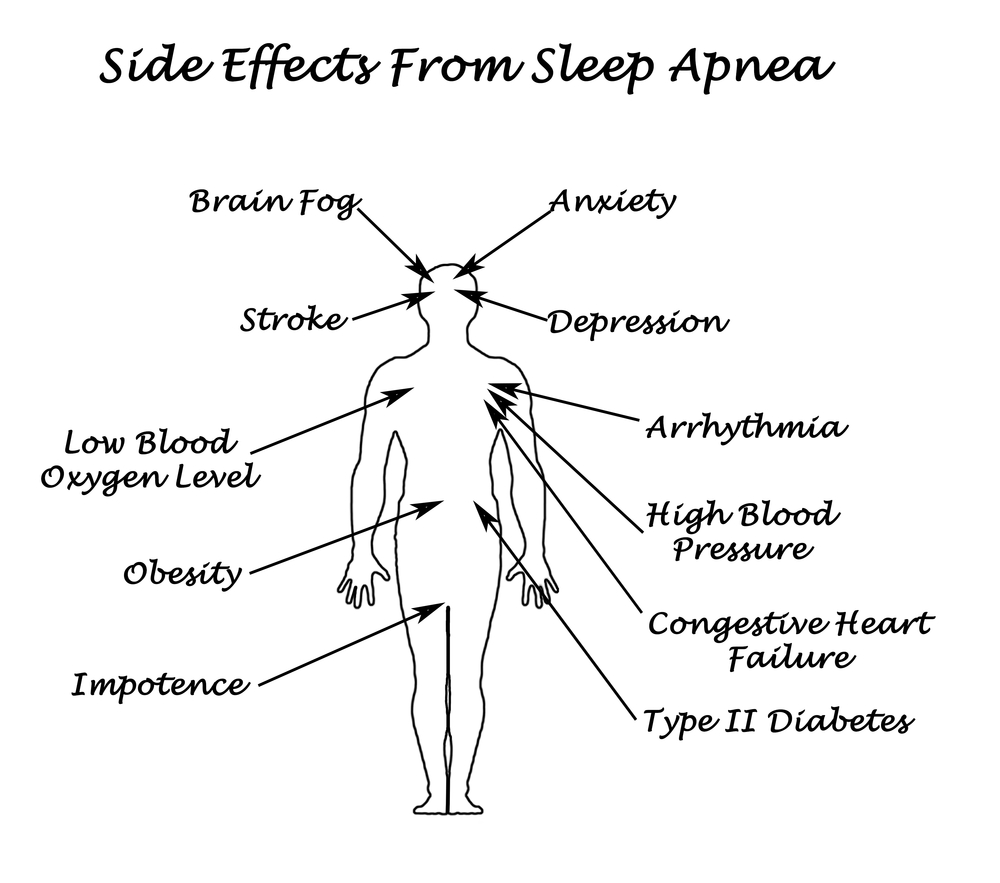
Night after night, if your bedmate complains about your snoring, you may suffer from obstructive sleep apnea. Fortunately, snoring can be treated.
As a doctor of dental sleep medicine, Dr. Timothy Mickiewicz of Sacramento helps patients overcome the battle with snoring, while also addressing sleep apnea if it’s present. Oftentimes, obstructive sleep apnea and snoring go hand-in-hand.
To learn more about snoring cessation, schedule a consultation with Dr. Mick by calling 916.469.9178. In the meantime, this blog post will explain:
- The difference between snoring and sleep apnea
- What causes snoring
- Side effects of snoring
- Snoring cessation
The Difference Between Snoring and Sleep Apnea
Loud, chronic snoring is often a symptom of a more serious health condition known as sleep apnea. The most common type of sleep apnea is obstructive, or OSA. Let’s explore what happens when you snore, versus what happens if you have OSA.
When we doze off, soft tissues in the back of the mouth and upper throat can relax and block airflow. This causes a person to stop breathing. Air cannot break through the collapsed tissues. After many seconds (up to a minute in some cases), the brain realizes a lack of oxygen and prompts the body to wake up and breathe. These episodes of when a person stops breathing are called apneic episodes. They can happen a few times or hundreds of times in just one night.
Snoring also involves lax soft oral tissues, but the tissues do not completely block airflow. Instead, they vibrate. Sometimes they vibrate very loudly! The loudest human snore is 116 decibels–that’s like the sound of a jet flying overhead. A sound of 60 or more decibels is considered severe snoring and is about as loud as a normal conversation.
Causes of Snoring
We know what how the sound of snoring is created–air passing by soft tissues in the airway. But what contributes to the condition? What makes snoring worse?
- Anatomy of the mouth and throat
- Alcohol or other depressants
- Having a cold or allergies
- Being overweight
- Being male
- Age and poor muscle tone
Side Effects of Snoring
What happens if you don’t seek treatment for snoring? First of all, find out if your snoring is related to sleep apnea, which can be a serious health concern. Aside from sleep apnea, snoring can cause:
- Sleep deprivation
- Daytime fatigue
- Difficulty focusing on tasks
- Irritability, moodiness
- Behavior issues, aggressiveness
- Poor performance at work or school
- Your bedmate’s sleep deprivation
- Morning headaches or migraines
- Sore throat upon waking
Snoring Cessation
If you do not have a sleep disorder, we simply need to keep your airway open to end your snoring. Dr. Mick may recommend a MAD, or mandibular advancement device. This oral appliance holds the lower jaw slightly forward to keep the airway clear, even when soft tissues collapse. The same device also treats obstructive sleep apnea, as a bonus.
If your partner complains about your loud snoring or you suffer from the symptoms listed above, call Dr. Mick’s Sacramento dental office today for a consultation. With decades of experience and a personality patients love, Dr. Mick can help you sleep well and live well! Call 916.469.9178 to reserve your consultation today.


